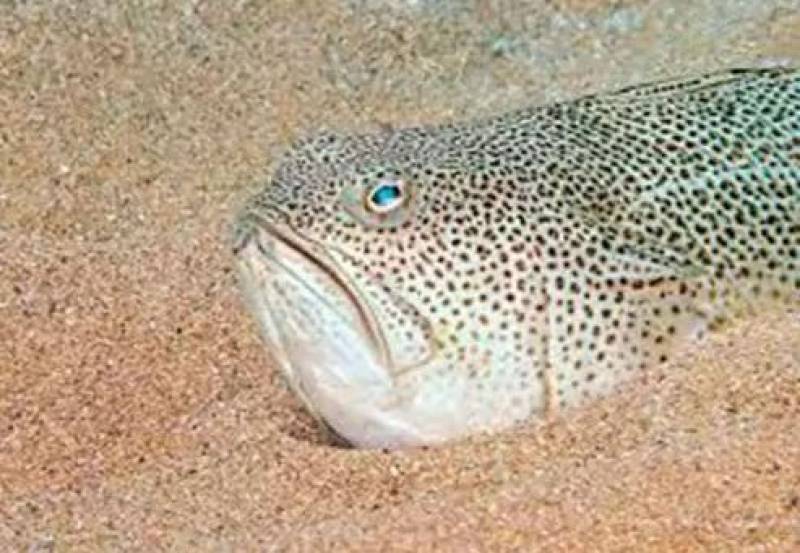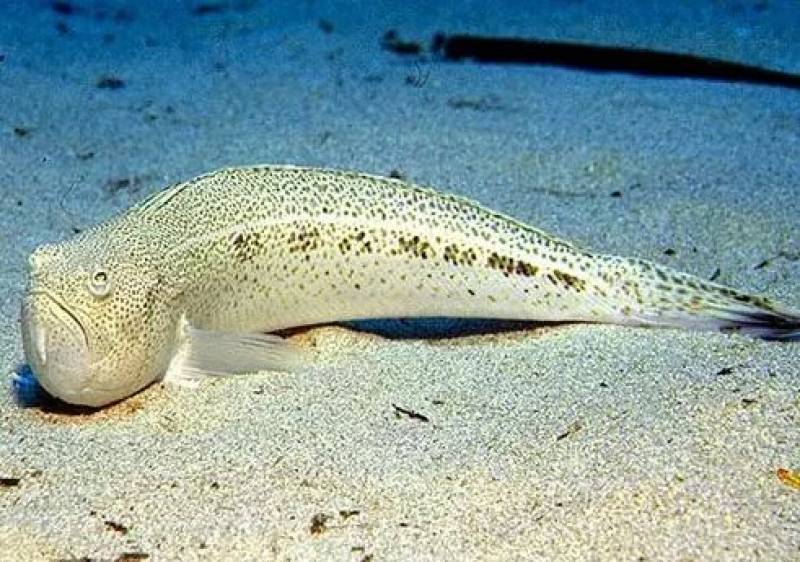article_detail
Date Published: 12/08/2024
Poisonous fish alert on Spanish beaches: Watch out for this tiny, venomous terror
More than 700 beachgoers in Spain have already been stung by this small but mighty critter

If you're planning to soak up the sun on Spain's stunning beaches, there's something you should be aware of besides the tempting turquoise waters and golden sand. It's the Spotted Weever fish, a small but mighty creature that has already stung around 700 beachgoers this season.
The weever fish, or Trachinus araneus, is a master of disguise, lurking in the shallow waters of Spain's northern beaches, especially in the Galician community. Growing up to 30 centimetres, this fish blends seamlessly into its sandy surroundings, leaving only its venomous dorsal fin exposed. And that's where the trouble begins.
Unsuspecting beachgoers, unaware of the danger beneath the sand, might accidentally step on this defensive little fish. That's when things get painful. The weever, feeling threatened, strikes with lightning speed and precision, injecting its spines full of toxins into the unfortunate victim's foot.
 Incredibly, this pint-sized fish is strong enough to pierce leather-soled boots with its toxin-filled spines.
Incredibly, this pint-sized fish is strong enough to pierce leather-soled boots with its toxin-filled spines.The result of an encounter with a spotted weever is not your average sting. It packs a powerful punch with severe pain, inflammation and redness at the site. In some cases, the reaction can be more severe, leading to fever, nausea, difficulty breathing and even loss of consciousness. Not exactly the beach day you had in mind, right?
One particular hotspot for spotted weever encounters is Sanxenxo, a popular beach destination in Galicia and a favourite haunt of Emeritus King of Spain, Juan Carlos I. This summer, around 700 bathers have already felt the sting of this sneaky fish, and last summer, the numbers soared to a staggering 1,700 affected individuals. With weever fish also found in Atlantic and Mediterranean waters, it's essential for beachgoers to stay vigilant.
You might be wondering why these usually shy creatures are suddenly making a splash. Well, it's a combination of factors. Summer brings warmer temperatures and lower tides, drawing the spotted weever closer to the shore in search of food. Unfortunately, that puts them in closer contact with unsuspecting beachgoers.
If you’re unfortunate enough to stumble upon a spotted weever, it’s important not to panic. While the sting is painful and can cause serious reactions, prompt action can help alleviate the symptoms.
If you're stung, get out of the water, remove any remaining spines without rubbing, and gently clean the area with seawater. Keep an eye on your symptoms, and head to a medical centre as soon as possible for further treatment.
All of Spain’s main beaches have lifeguards on duty this time of year, and they’ll know what to do.
According to the experts, the best way to avoid a nasty surprise is to shuffle your feet when entering the water or walking along the shore. This disturbs the fish, and they're more likely to swim away than strike.
With a little awareness and precaution, you can still have a fantastic beach day, free from unexpected stings.
Also of interest: 8 most common summer cyberscams targeting tourists in Spain
Images: Peces Mediterraneo
Loading
See more news about animals in Spain:
OR
Sign up for the Spanish News Today Editors Roundup Weekly Bulletin to get a comprehensive email with all the week’s news for Spain, Murcia, Alicante and Andalucía.
Get a sneak peek – here are a few of our recent Subscription Bulletins:
Discount Special Offer subscription:
36.95€ for 48 Editor’s Weekly News Roundup bulletins!
Please CLICK THE BUTTON to subscribe.
Contact Spanish News Today: Editorial 966 260 896 /
Office 968 018 268



























